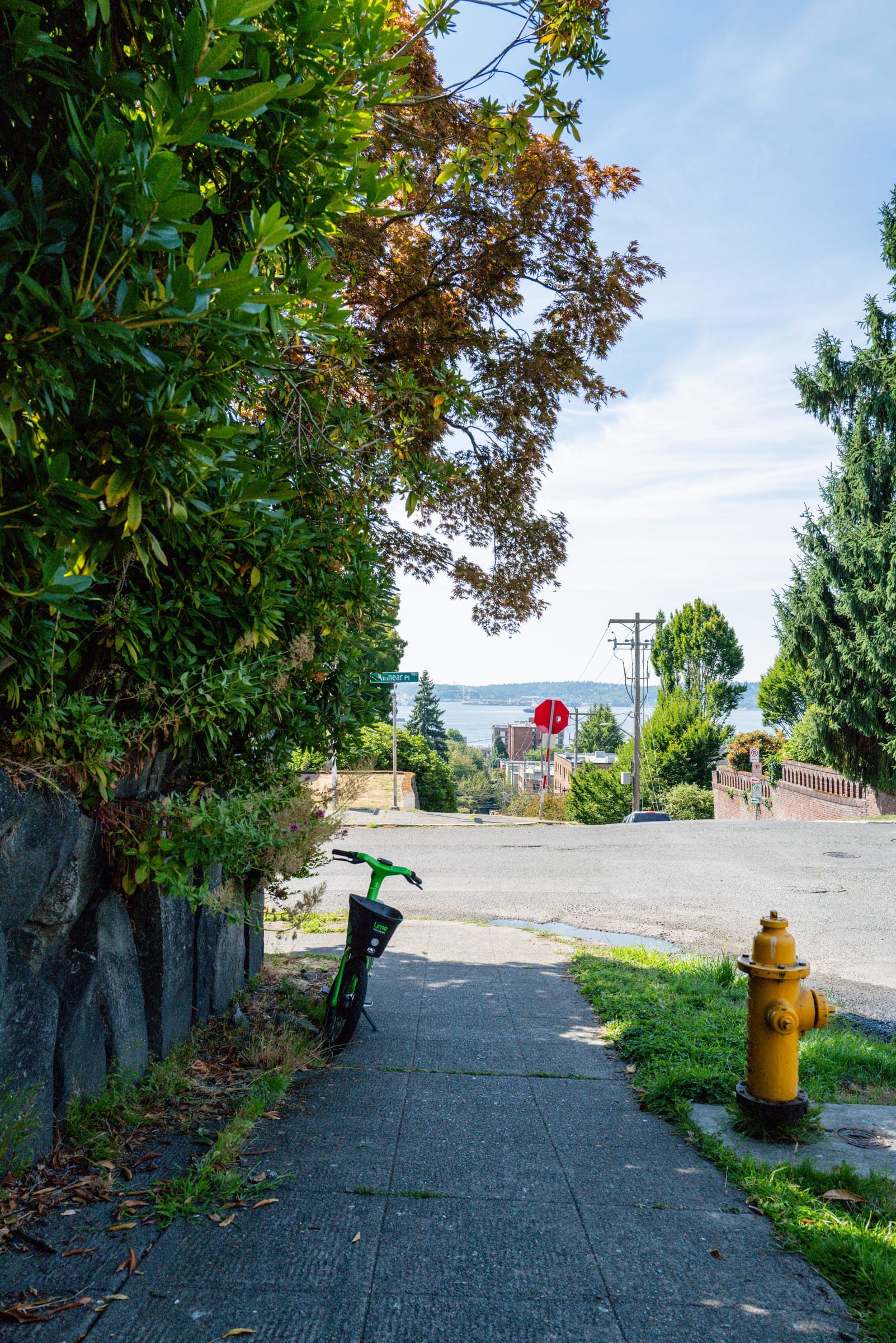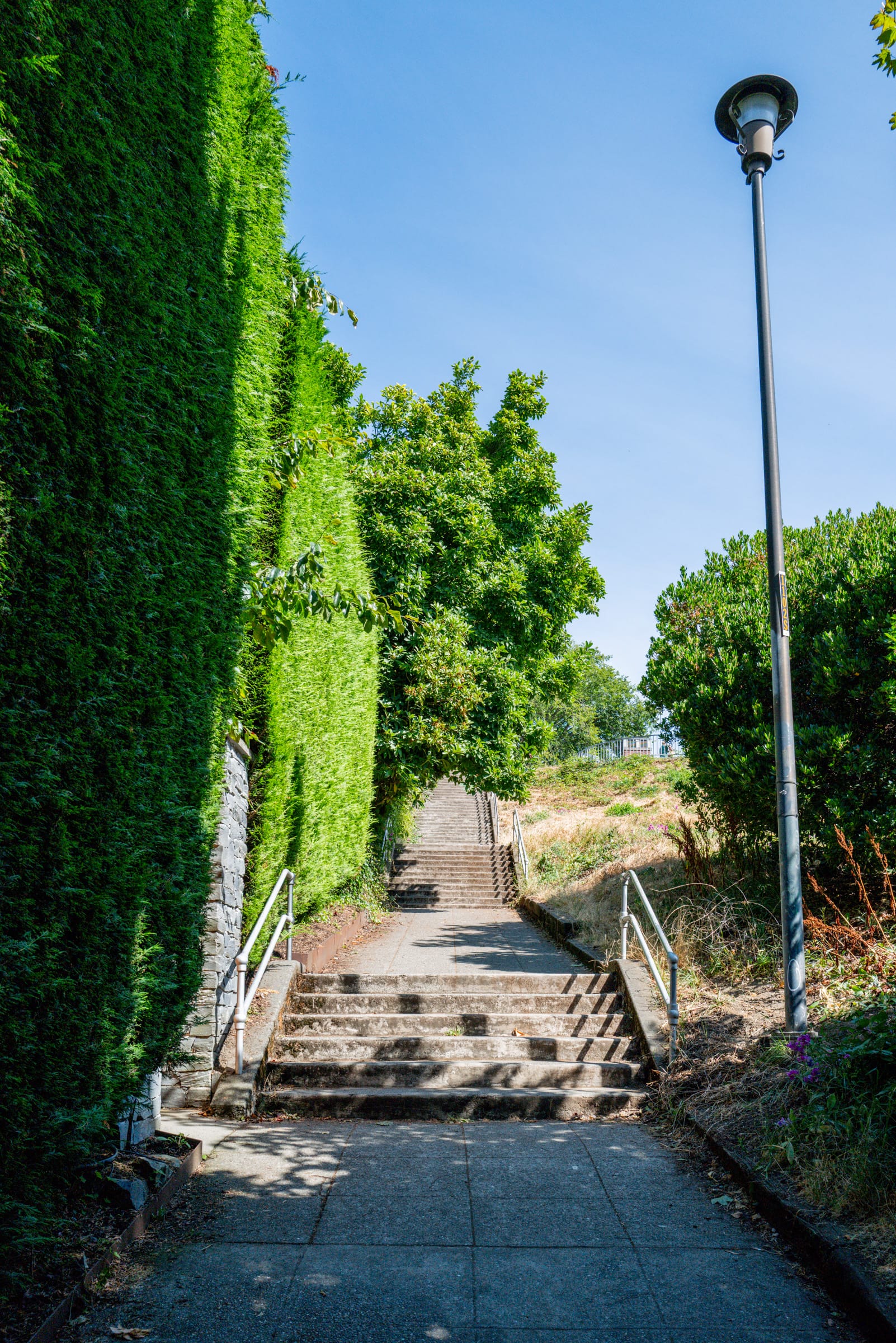Happy day-before-Blue-Monday, friends! I hope you’re not feeling like it’s Blue Monday. But it’s difficult not to feel this way — we here in Southern Manitoba had a week of abnormally warm temperatures, and we are now staring down the barrel of credit card bills and -30 Celsius for the entire week ahead. And, if you’re a Canadian baseball fan, the last 72 hours of signings likely didn’t help with the Blue Monday vibes. Why do we live in Manitoba again?
I have this internal goal to read 12 books this year. And though I’m not sure if I can make it, I am certainly seeing the benefits of more daily reading. Meta-wise, my reading workflow is still being built out. So far, it’s pretty simply done inside the Kindle app, with highlights being fed into Readwise for spaced repetition. I started the year reading on the largest iPad Pro, but this has been quickly supplanted by the iPhone 17 Pro Max. It’s a wonderfully sized device for reading.
Another device that looks great for reading: the Viwoods AiPaper Reader (or the Colour model here). I’m probably starting to accumulate too many devices at this point, so the Viwoods is going to stay on my wishlist for now.
Reading has helped with more than just knowledge workflows, though. I’m in the middle of Morgan Housel’s most recent book, The Art of Spending Money. So far, I preferred Housel’s first book, The Psychology of Money, which opens with the following lesson:
Here’s the thing: People from different generations, raised by different parents who earned different incomes and held different values, in different parts of the world, born into different economies, experiencing different job markets with different incentives and different degrees of luck, learn very different lessons.
I despise — yes, despise, hotter-than-a-thousand-suns despise — the attitude of “things being obvious”. There is seldom a situation where “This is the correct way to do things” when it comes to situations people argue over. If people have differing opinions about something, it’s because it’s a complex topic, and it takes walking a few miles in that person’s shoes before you can better understand the reason for the debate.
There’s this little video going around from the latest Landman episode (I’m not a TV-watcher in the slightest, so I haven’t seen the show). The young lady meets with her principal or advisor, and she brings up a heated topic for discussion. The principal — a 60+ year old lady — takes a huge deep breath, pushes her chair back, and looks sternly at the young lady. When asked what she’s doing, the older lady says, “I’m preparing myself to be offended.”
Golly.
“I’m preparing myself to be offended.”
Rather than consider the young lady’s commentary — of which she has no idea what the young lady might say — she just jumps to a half-cocked, ready-to-fight persona. Rather than look for a teaching moment, the old (“wise”?) woman readies herself for verbal warfare. There are remarkable scenes in The Great Gatsby — the one with Leo DiCaprio — where two men verbally berate each other, and the loser of the argument is the one who flinches, loses control of his temper, and raises his eyebrow. The scene is mesmerizing — there is an active verbal assault on each other’s belief systems, and neither party in the debate even becomes flush red in the face.
I’m not wise enough to know where in the world this problem came from. We jump to conclusions faster than a 180-character post or a 10-second video on TikTok. If the first words out of a person’s mouth aren’t reflective of what you believe, it must be because that person is Insert the most vitriol adjective for someone here. “If you don’t believe what I believe, you are, quite simply, a fool.” “The truth is just so obvious to everyone but you.” You know, stuff like that.
Every person has a story or a past. There are reasons — almost always complex reasons — for difficult decisions that were made and which resulted in a poor outcome. Never is someone “crazy” or “stupid”. They are a product of their lessons, their upbringings, their circumstances. It is our job — as reasonable human beings who control our emotions — to query those lessons, upbringings, and circumstances and attempt to discern why a person does or believes the things they do, or why a certain situation ended with those particular results.
There’s always, always, always more to the story. Figure out the story and figure out the result. Skip the story and make your assumptive-self fall further down the ladder.
This is about as blunt and harsh as I can get. I’m tired of presumptions. I’m tired of irrational polarity. I’m tired of 10-second decisions. These actions push people away, when the only chance to build a bridge is to bring people in.
One other thing I read this week:
Easy decisions, hard life. Hard decisions, easy life.
The hard thing to do is give the benefit of the doubt to someone you vehemently disagree with. What’s easy in life when giving someone the benefit of the doubt? You assume a lot less about the world around you and focus on the things in your life you are grateful for.
Easy decision: Choose the hard thing to do.
A Quick Thought on AI-Written Material
I worked with a client recently who made an interesting remark about artificial intelligence. He’s older, successful, and wise — you get the drift. He said he prefers finding written material with spelling mistakes in it because then he knows it’s not written by AI, and he knows the writer knows everything in the material. The opposite being: If you’re using AI to write something, it’s easy to not know what’s inside your writing, and you may be writing something you didn’t intend to say or didn’t intend to include.
I’m neither positive nor negative on AI — like I described above, it’s complex. AI is a fascinating tool for certain parts of my work, but I’ve immediately noticed brain rot creep in around topics easily handed off to an AI bot. Long-term, I imagine I have to come up with a workflow to combat the brain rot.
In summary, though, I appreciate the gentleman’s insight regarding AI. Every so often, the spelling mistake is the key to landing the deal.
Marshmallows and the Best Life
Kevin Wild, a long-time reader of this site and writer of one of my longer-read sites as well, posted this thought-provoking piece recently. It’s short and sweet and is sure to make you wonder which path is the right path. Head over there to read his post before reading my commentary below.
Read it? Good.
I appreciate Kevin’s perspective. Like all things in life, I imagine “Screw it, I’m eating the marshmallow now” is best done in moderation, with a healthy balance of leaving marshmallows for the future in other areas of life. You can’t YOLO your way in every decision or situation. Kevin will surely know this, and I will never imply he doesn’t.
But.
I fear “YOLO”-style thinking chains human beings — that they become slaves to experiences, to pursuing a “best life” defined by gratification. That if you don’t get to experience something, you’re falling short of your potential in some way. If you miss the experience, you aren’t living your “best life”.
I believe there is a great deal of freedom in letting go of this pursuit of gratification. Instead of chasing gratification and satisfaction, I believe most human beings would find more meaning in serving others. Human beings exist to serve, not to be served. And so there is freedom in letting go of an endless pursuit of gratification and adopting a pursuit of service to others.
Perhaps, to bring it back, the best life is one where you don’t eat the marshmallow at all, but build a factory so everyone else can eat marshmallows instead.
The Second Cup
I went to Tokyo with just a 35mm prime
First off, Adrien’s voice is just so soothing. This is almost an ASMR video. Second, I had a giggle when Adrien said something like “Don’t worry about disrupting someone in a big city; if you come back, you are never going to see them again next time.” My wife and I honeymooned in NYC in 2013, and we went to a baseball game. There was a gentleman selling beverages at the game who had a strong New Yorker accent. We then travelled back to NYC one year later and went to another baseball game, but with an entirely different team. There he was!, the same gentleman selling beverages in a different stadium for a different team. Now, the likelihood of seeing him again increases because it was baseball, it was summer, and so on. But I found it insanely unrealistic to have run into the same gentleman two years in a row in a foreign city.
A Visualization of the History of Paris
I’ve always loved Paris. I don’t know why. Perhaps it’s because it’s such a photogenic city.
Interior Browns and Greens on Instagram
I wondered where my wife was getting her interior design inspiration these days. Our bedroom is now entirely brown and green.
Fresh Links From the Week
Here were a few things I shared from the past week. If you want to stay on top of the list throughout the week, don’t be afraid to subscribe via RSS.
- Bowlus Rivet: An Ultralight Luxury Travel Trailer
- Akiflow: A Time-Blocking Digital Planner and Calendar
I really need to start posting more of these during the week.
Happy Sunday. I hope you have a wonderful week ahead.
P.S. — If you’d like to see this in your email inbox, please subscribe below. If you have trouble subscribing, shoot me an email, and I’ll get you on the list. Thanks for the consideration!















